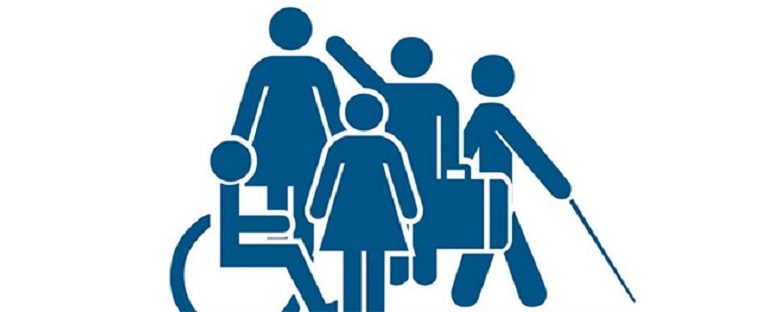
New figures show an increase in disabled people supported by Access to Work
A record number of employees with a disability or health condition have been supported by the Access to Work scheme over the past year. New figures reveal in 2018/19, 36,240 people received the life-changing grant last year – an increase of more than 2,000 on the previous year.

The statistics from the Department for Work and Pensions (DWP) show that the Access to Work scheme is up to record levels, with £129.1 million spent last year, an increase of £15 million since 2010.
Minister for Disabled People, Justin Tomlinson said:
“Having a disability or health condition must not be a barrier to enjoying a fulfilling career – and the support available means there’s no excuse for employers who refuse to be inclusive.
Access to Work removes the obstacles facing disabled people in the workplace, helping to level the playing field and ensure businesses don’t see employing disabled people as a burden.
With more disabled people than ever before supported through Access to Work, thousands more employers across the country are benefitting from the skills disabled people bring to the workplace.
Access to Work is part of a wider government drive to create more job opportunities for disabled people, with nearly 950,000 more disabled people in work compared to 5 years ago.”
Rachel Suff, senior policy adviser at the CIPD, said the increase in spending should be applauded, but there was still more to be done.
“It’s encouraging that there has been an increase in the number of people helped by Access to Work, but there is still scope to improve its reach as there are many more people than 36,000 with a disability or health condition in work or who want to access work,” she said.
Rachel added that while a majority of HR managers were aware of the Access to Work scheme, there was still a need for wider awareness among employers.
“Last year, CIPD research showed that 60 per cent of people management professionals had heard of the scheme and a third had used the scheme; of the latter, nearly three-fifths had found it very helpful. Access to Work, therefore, has the potential to really help people with a disability or health condition access the changes they need at work,” said Rachel.
“For this to happen, there needs to be wider awareness of the scheme across employers.”
What is Access to Work?
Access to Work is a government-run scheme that breaks down workplace barriers for disabled people and those with health conditions by paying for adjustments such as:
- communication support for interviews
- special aids and equipment
- adaptations to premises
- adaptations to vehicles
- travel to work (help with the costs of travelling to work)
- travel in work (help with the costs of work-related travel)
- sign language interpreters
- support worker
- mental health support service
- miscellaneous.
People can receive almost £60,000 a year through the scheme, which is more than double the average annual salary. This is an increase of 40% in just two years.
Who can benefit from the Access to Work scheme?
Anyone who considers themselves to have a disability or health condition can be eligible for the Access to Work scheme. This can be a:
- physical disability
- visual or hearing impairment
- chronic illness
- dyslexia
- autism
- learning disability
- or mental health problems.
Ross is a wheelchair user who works for Lloyds Banking Group. He has a support worker to help with workplace tasks, paid for by Access to Work.
Ross said: “Access to Work has made a massive difference to my life. Without it, I wouldn’t have a job. I probably wouldn’t be earning a living, I wouldn’t own my own home, I wouldn’t be able to go on holidays and I wouldn’t be able to follow the hobbies that interest me because I wouldn’t be able to be employed. It makes a massive, massive difference to me.”
Louis, who is visually impaired, also works for Lloyds Banking Group. Access to Work has paid for taxi fares so that Louis and his guide dog Dexter can get to and from work safely.
Louis said: “Access to Work is that key enabler which allows businesses to be as inclusive as they want to be.”
To find out more about the scheme and how to apply, visit Access to Work.
Do you use the Access to Work scheme? Has it made a difference to you in the workplace? Share your stories in the comments box or on Facebook and Twitter.
By Emma Purcell
More on Disability Horizons…